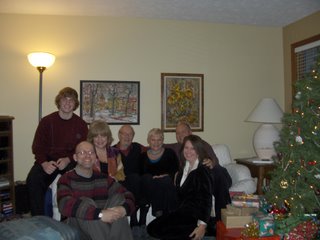GUINEA: A Country in Transformation
By Gypsy Meadows
Most of you know the story of Paul on the road to Damascus: a dramatic conversion followed by a life led for one thing only — to further the work of Christ in the world,no matter what the consequences. The story of Emmaus Christian School parallels Paul’s, and as you will see, is just as steadfast in the face of adversity.
Emmaus Christian School is in Conakry, the capital city of Guinea in West Africa. Despite a vast wealth of natural resources, Guinea is one of the poorest countries in the world. According to Operation World,it is also one of the least evangelized countries in Africa. Since the era of Soviet repression from 1960-1983, Guinea has been plagued by corruption in the government and deficient social services, especially in education. 75% of the population is illiterate, and a tiny fraction, less than 1%, complete secondary education.
The situation is made even more difficult for girls, as the majority of them will be petitioned for sexual favors from teachers before they are rewarded with a diploma. Girls make up less than 10% of those who graduate from secondary education in Guinea. Without an education girls often turn to prostitution, while young men become vulnerable to rebel gangs—which recruit and train boys to plunder throughout West Africa, targeting countries such as Liberia and Sierra Leone. As the situation seems to worsen in Guinea, talented and informed
Guineans become discouraged and many immigrate to North America.
THE ROAD TO EMMAUS - It is into this situation of apparent hopelessness that Emmaus Christian School enters the scene. In 1997, a man named Samuel Kamano founded Emmaus inthe municipality of Matoto, in Conakry. Since its beginnings the school has grown tremendously, and all of it has taken place in a self-supporting waythrough the leadership and teamwork of Africans.
Emmaus offers the best education in Guinea, and the future political leadership of the country may come out of this school. “Emmaus has rapidly gained a reputation amongst government officials as a viable and exemplary educational institution,” writes Harold Kallemeyn, sponsorship coordinator for the school. “A number of high-ranking government officials have enrolled their own children in the Emmaus School, despite their Muslim background. The school is becoming known as a place where children learn to work hard, value honesty, and develop personal initiative and respect for each other.”
Some graduates of Emmaus will become Christians, while others will retain a respect for Christianity. “Emmaus is building a social consciousness in a culture focused on tribal leadership,” Harold explained. “Instead of blindly following leaders, the school encourages students to reflect for themselves – they stress interaction, questioning and discussion.”
A SOCIETY OF FEAR - With this attitude, Emmaus is going a long way to build democracy. “They are countercultural in a society of fear,” said Harold. “It’s important that this way of thinking is exported to other countries. Elections are a farce there—it’s a great tragedy in Africa.”
Along with helping students develop a social consciousness, the Emmaus team must also be innovative with curriculum development. Guinea is a former colony of France and they are dependent on French texts. Harold, a citizen of Paris, reported that these texts are somewhat anti-religious and elitist, with a focus on transmitting information rather than on classroom interaction.
Challenges abound at Emmaus. The school runs despite intense opposition from militant Muslims in their neighborhood, who do everything they can to persuade the local landlords to oust Emmaus from the facilities they must rent. “During the latter part of the summer, 2001,” reports Harold, “Muslim extremists approached two of the landlords who had been renting classroom facilities to Emmaus. They offered the landlords three to five times the current rent if they would evict Emmaus from their properties. This offer was accepted, and so the staff of Emmaus had to scramble to find alternative rental facilities.
EMMAUS CHRISTIAN SCHOOL AT A GLANCE - Current Location: rented facilities in the municipality of Matoto, city of Conakry in Guinea, West Africa.
- Primary Religion of Student Families: Islam Number of Students: 1,200 currently enrolled
- Offerings: a kindergarten, primary school, junior and senior high school. The junior high is one of two in the municipality of Matoto – a community of 100,000 people, 30,000 of whom do not attend school.
God’s hand is obviously at work at Emmaus, but further growth and development can only happen through partnership with Worldwide Christian Schools and its donors. “The Emmaus School Board has arrived at a critical juncture in its development,” writes Harold. “The Emmaus Parents’ Association has raised the funds needed to purchase land for a building which will serve both the junior and senior high. However, building costs are above their means. The Emmaus board is seeking financial partners who will help make this building program possible.”
“The school has operated successfully largely because of good leadership, teamwork, and resources,” Harold reported. “However, tuition costs are presently fixed at $115 per student.” Some potential students cannot afford tuition, but sponsorship would enable them to attend classes.
When you consider Paul’s conversion on the road that fateful day, there is a comparison to be made: Guinea, a nation close to hopelessness, and Emmaus, a school that has become its flickering fire. This school has risen from the ashes and will transform its country.
Will you join the efforts of the dedicated Emmaus team on this project? It will make all the difference in the lives of the students, their parents, and their country. “...Many other children in our area are regularly coming here to read. There is no library in our area except our school’s. We have been blessed through you...”
PLEASE JOIN US! - To donate to this project, go to www.wwcs.org and click on The Calling. For more information contact Dale Dieleman: ddieleman@wwcs.org or (616) 531- 9102







